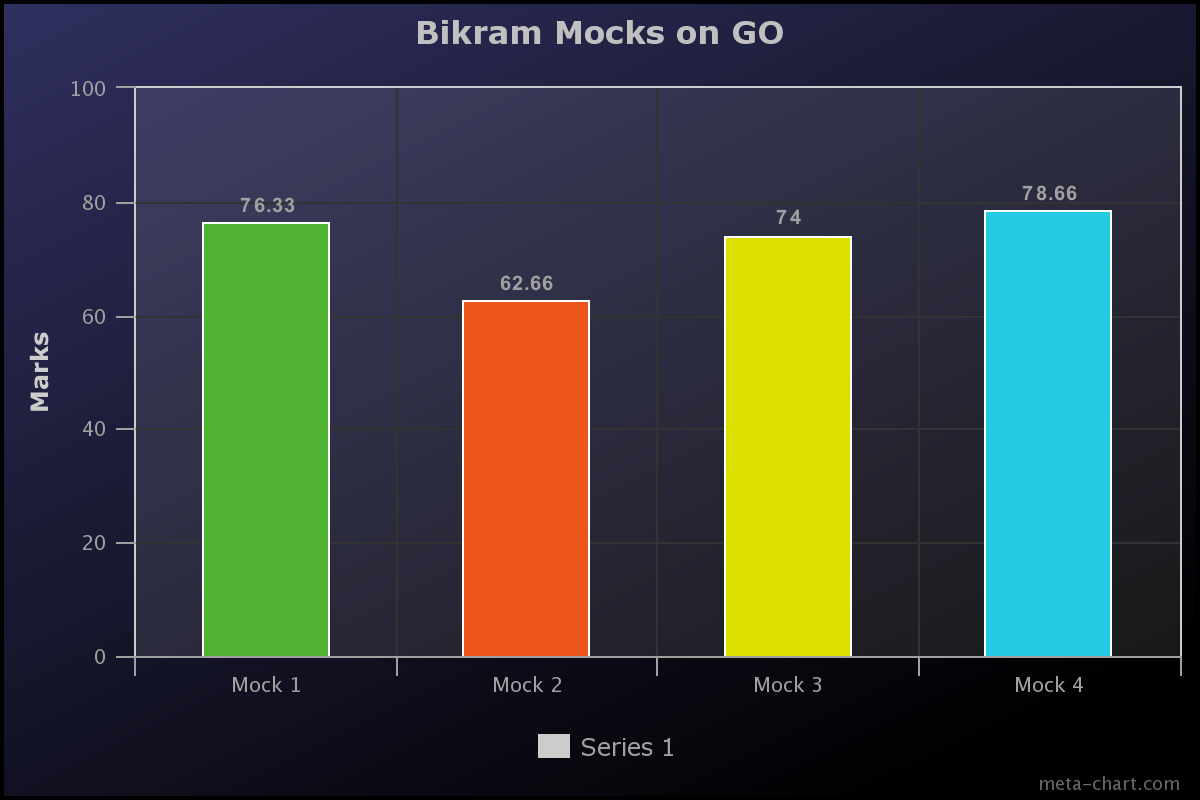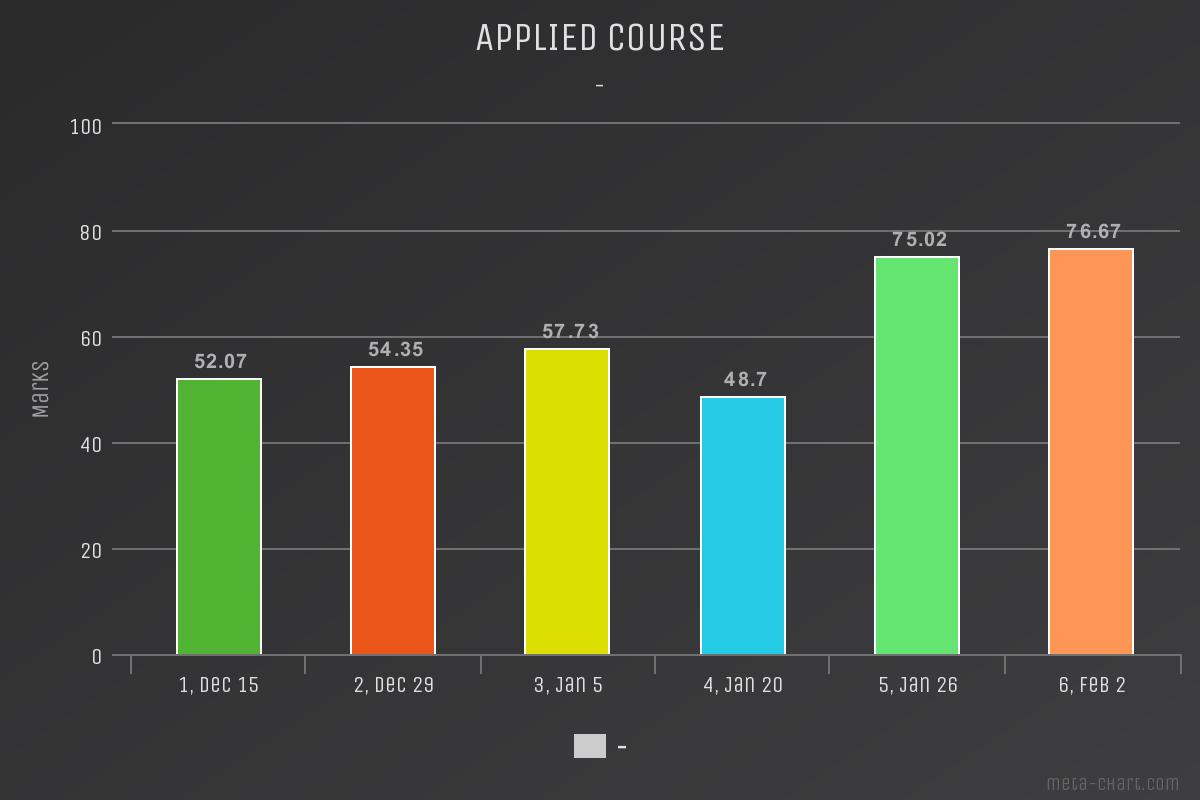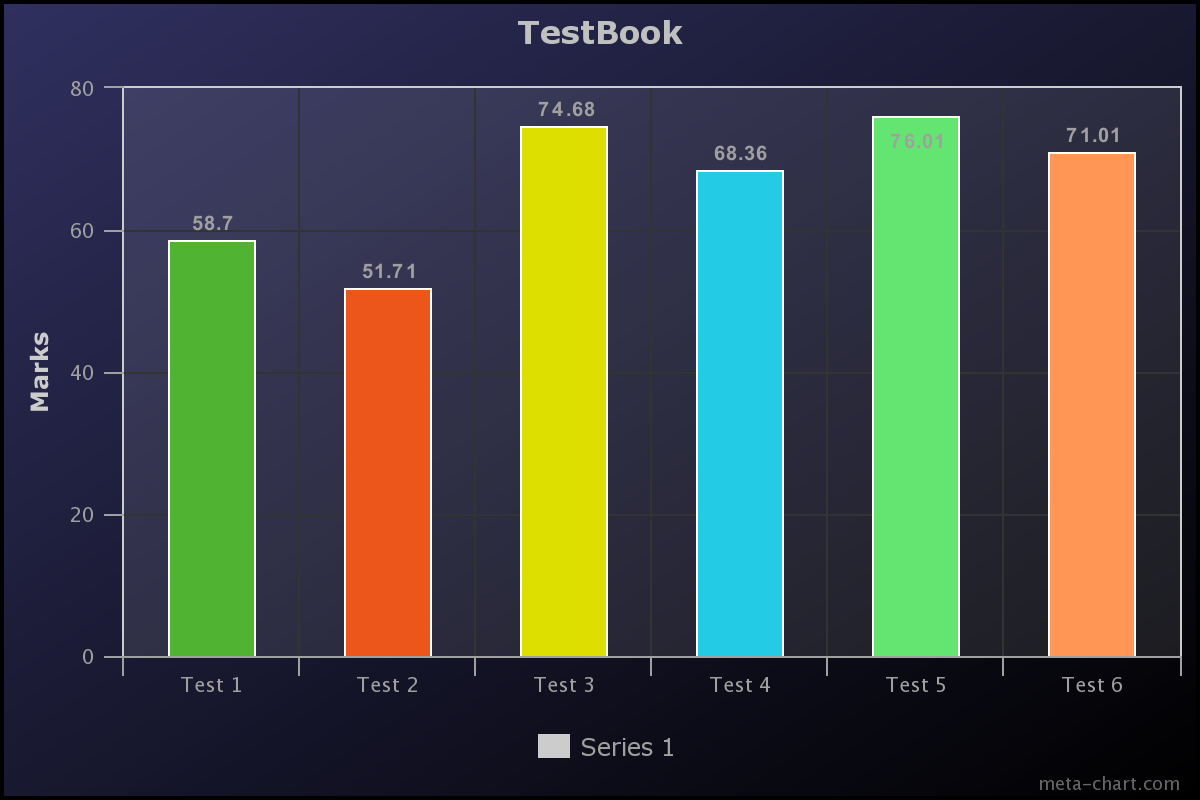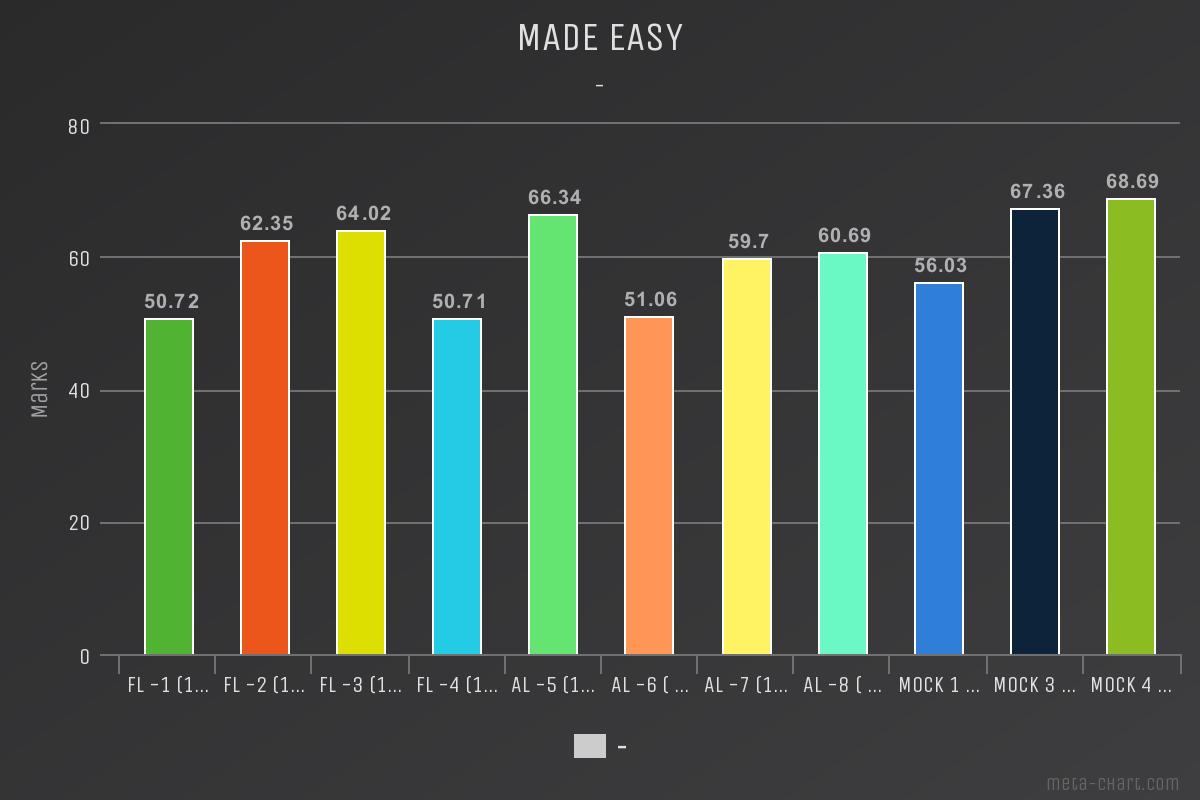Resources That I Used For GATE
What are the right resources to study from?
I get this question from everyone and honestly, there are no right set of resources for everyone. For example, almost everyone who clears GATE suggests Cormen for algorithms but good lord, that book is huge. I could never get myself to study from that book, so I chose another one. My point being -
Find out what resources/books/lecture notes work for you. What worked for me, will not necessarily work for you. Often, I would have to study a concept from multiple resources. There is no single book for ANY subject that will help you clear GATE.
That being said, here are the resources that I used: [please Google the books on your own, I can’t link them all here.]
-
Data Structures - Frankly, there’s no “book” for data structure. As I mentioned above, I did Leetcode problems and that’s how I got comfortable with coding. For C programming and other data structures, you can find some excellent resources by Prof. Nick Parlante of Stanford here. Other than that, the only way to get better at this is to actually code. Code a lot.
-
Algorithms - I used a book called “Algorithms by Dasgupta, Vazirani and Papadimitriou.” This excellent course on Algorithms here follows the same book.
-
Databases - I studied normalisation from Knowledge Gate videos on YouTube, and B/B+ trees from RBR (a friend in my library had subscribed to it) and SQL from Made Easy notes (which are available online). Rest all the topics - Database Systems by Korth, Sudarshan et al. Use the slides available to revise later.
-
Computer Networks - I studied the entirety of it from RBR. But, doing only those videos aren’t enough, in my opinion. I also went through textbooks for all the topics again. There is not a single textbook that worked for me - I went through Tanenbaum, Kurose & Ross and Peterson & Davie. For example, congestion control and flow control is explained very well in Kurose & Ross. I went through all the relevant problems from Tanenbaum and some chapters from Peterson & Davie. In order to ensure that I didn’t miss anything, I also used to go through Wikipedia pages of concepts like TCP/IP, application layer protocols.
-
Operating Systems - I used a textbook called Operating Systems: Three Easy Pieces. There’s an excellent set of videos from Prof. Mythili from IITB, which follows the same textbook. That is present here. On top of this, there’s an excellent Operating Systems NPTEL course by Professor Chester Rebeiro of IIT Madras. If you use that course, your synchronisation concepts will be crystal clear.
-
Compiler Design - I used the free videos of RBR available to study parsing numericals. Another important resource was CS143 slides by Stanford, which can be found here. I had also studied for my college exams from the Stanford MOOC offered by Prof. Alex Aiken on Stanford Lagunita. For syntax directed translation, I refered to some videos from the NPTEL course on Compilers by Prof. Sanjeev Agarwala present here. You can also refer to slides by Prof. Rupesh Nasre from IIT Madras, which are present here.
-
Theory of Computation - For problem solving of DFA/NFA/PDA, I used the free videos of RBR avaiable online. To supplement that with actual, formal proof-style TOC, I followed Prof. Raghunath Tiwari’s course on TOC, which can be found here. I also solved a few problems from Peter Linz and Michael Sipser, but I didn’t peruse them thoroughly. There’s also this great YouTube channel called Easy Theory, which has a lot of interesting videos on Theory of Computation - especially Rice’s theorem, it’s proof and other undecidable problems.
-
Digital Logic - I didn’t use any textbook for this subject as it wasn’t too complicated. Most part of it, I did from Neso Academy videos online, freely avaiable online on YouTube. Parts which I had doubts in (for eg: adders) I did from GATEBOOK videos available online. The sequential circuits and number system part, I did from RBR. Number system has especially been taught very well in RBR lectures. But if you can’t afford or can’t find someone who has it, Neso Academy is also more than enough. They’ve explained it very well, and for free.
-
Computer Organisation and Architecture - This is probably the most annoying subject for all GATE aspirants. Fortunately, I liked this subject for some reason, and was decent at it (at least for GATE purposes.). The best resource I would suggest is Hennessey & Patterson. COA is a subject which CANNOT be done well without going through standard textbooks, in my opinion. No amount of online videos, notes, blogs are a substitute for standard textbooks, especially in COA. Along with it, here’s a playlist I made for lectures from various online sources - they primarily contain basics (till performance equation), pipelining and cache Memory. For other topics like Amdahl’s law, DMA etc, you can refer to this excellent NPTEL course. There are a few other NPTEL courses which might be relevant - I will link them here and here.
-
Mathematics - For discrete mathematics, GATEBOOK has an excellent set of free lectures which I followed. Along with that, I religiously solved Kenneth Rosen - solving all the relevant problems from Sets, Functions, Graph Theory, Trees and Combinatorics. For relations, I used free videos of Knowledge Gate. [I left group theory and all that GUB, LUB shebang, because it seemed annoying.] For probability, my primary sources was notes by Prof. Janko Gravner, which is present here. I also used the YouTube channel JBStatistics to study probability distributions and random variables.
There it is - I have mentioned all the resources that I used. If it seems overwhelming and you want a neat 10 line list of resources, I am sorry about that. I tried to be as honest as possible about whatever I used, so that people don’t assume that studying from a single book or solving only coaching material (I never touched these, despite having them) will help you clear GATE.
What test series did I use?
I had given very few tests in my attempt in 2019 and I knew that was a weakness of mine. So in order to fix that, I bought multiple test series this time around. I had - Testbook, Gatebook, Applied Course and Made Easy.
If I had to rank them in order of preference, it would be: AppliedCourse = GATEBOOK > Made Easy > Testbook.
-
GATEBOOK : It helped me a lot to stay on schedule because they were offering rewards to all students who were taking the test as per their schedule. So that provided me an incentive to do things in time. The questions were mostly from university assignments from various universities, as well as questions from textbooks. After every test, I used to Google the questions to find out where they had been asked from and then, try to solve the entire assignment from its original source. This is how I built my list of bookmarks too, as I used to save all the assignments from which questions had been asked. Sometimes GATEBOOK asked questions which were higher than what was required for GATE, but ultimately, it helped strengthen my concepts too. The only drawback I faced was that the results weren’t available immediately and I usually had to wait 4-5 days, just to get the answers and the marks that I had scored. Hopefully, they shall fix it this year.
-
AppliedCourse: They had a lot of new questions, and other questions were a variation of what was usually present in textbooks. Their customer service is very prompt and any doubts I had in the test series questions were usually resolved within a couple of hours. Same as GATEBOOK, some questions which were present which were above GATE level. But if you ignore them, most questions were of good quality, with very few errors here and there.
-
Made Easy: I won’t say much about this, as there’s enough about this online. I mainly used it to get a sense of competition.
-
TestBook: Most questions were easy, and variations of previous year questions. Mostly used it to practice avoiding silly mistakes.
You can also find the list of all the tests that I had taken, along with the marks I scored in them here.
I share this not because I want to brag (there’s nothing bragworthy in there anyway) but because when I used to score low in tests, I used to be devastated and then feelings of doubt, anxiety would creep in - that whether I’d be able to clear this year, whether I was not good enough for GATE etc etc. I used to feel these are the same marks I would score in my final exam too and used to look for sources of hope - stories of people who had scored shit in mock tests and did well in the final exam.
During those times, I also used to call my lovely friend Kartavya (who scored AIR 45 in GATE 2019 and joined IIT Bombay) and used to talk to him about how his test scores were when he was preparing and seek motivation from him. He used to tell me how his scores would suck at times too, and that’d give me hope that I can do it too.
Point being, these test scores can serve as a reference to people who might want to know what people who did well in GATE used to score in their mock tests.
Here are some pretty graphs too - these are the marks that I scored in full length tests of various test series, arranged in chronological order. I started giving full length tests from December 1 onwards.




Other than test series, where did I solve problems from?
As mentioned already, I used to solve problems from assignments, textbooks and exams etc.
Trust GateOverflow - especially with previous year questions. Almost all other sources have errors in them.
On top of this, one excellent way to improve your concepts is to use GateOverflow website efficiently. As of now, GateOverflow has over 50,000 questions asked by users, across all subjects. Each subject has at least 2000 questions. It also has a feature where you can search questions by Tags and I made use of that extensively.
For example, I sucked at SQL and still do. For the love of my life, I could never do well in SQL problems. So what I did was, I went to GateOverflow and searched questions which had the SQL tag. There were around total 600 questions, only from SQL and I sat down and solved over 200 problems in one day. This helped me get better at SQL. You could replace SQL with any other tag - cache memory, normalisation, regular languages etc and there will be enough questions on GateOverflow. They are an excellent resource and one should definitely consider solving questions from there.
I was also part of a bunch of Facebook and Telegram groups for problems where people used to post doubts, but their effect was negligible, if I am being honest.
